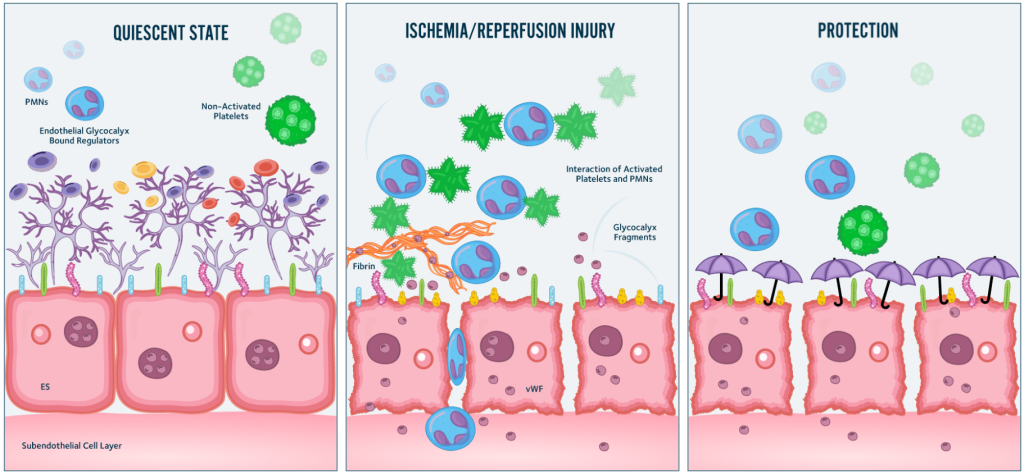iCM012
iCM012 is a modified polymer that has the ability to enter a cell membrane and form a protective barrier which prevents plasma proteins and immune cells from reacting with the cell membrane. Through this process, ischemic cells are protected from attacks from the innate immune system and ischemia reperfusion injury is reduced.

iCM012 forms a barrier on the cell membrane and protects endothelium and compensates for damaged glycocalyx. This limits the attack from the immune system and cells remain protected. The barrier remains during 48 hours, a period during which the innate immune system’s attack against the transplanted organ is especially intense. Thereafter iCM012 leaves the body through the urine. The benefit of iCM012 has been confirmed by a large number of in vitro studies and four in vivo studies on pigs.
iCM020
iCM012 is also a platform molecule that can be used to further develop purpose-designed molecules that can protect the cell surface from specific damages. iCM020 is such a molecule that is developed to prevent damage particularly induced by warm ischemia by creating a protective barrier on the cell membrane. There are two primary states in which ischemia occurs in the patient:
- Transplantation
- Thrombosis, for instance myocardial infarction and stroke
Ischemia that occurs during storage and transport in connection to a transplant is known as cold ischemia. Thrombosis on the other hand occurs a body temperature, +37 oC, and is known as warm ischemia.